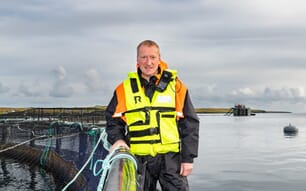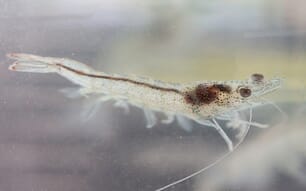Herring has a naturally high content of cetoleic acid, which is a fatty acid whose importance Nofima had not previously been aware of. Nofima now knows, however, that it has properties that promote health.
Senior scientist Bente Ruyter and her colleagues at the food research institute Nofima have carried out experiments showing that cetoleic acid stimulates cells to convert short omega-3 fatty acids into the healthy, longer marine omega-3 fatty acids.
The experiments used human liver cells and liver cells from salmon. Both of these showed that pure cetoleic acid stimulates increased formation of the healthy, longer marine omega-3 fatty acids. The results have been confirmed in salmon that have been given feed with herring oil that had a high content of cetoleic acid. Fish oil is an extremely important ingredient in the feed given to farmed salmon, but it is not the dominating one.
Cetoleic acid added to feed causes the salmon to store 10 per cent more marine omega fatty acids (EPA and DHA) in the body than they do otherwise.
“It’s too early to say how large an effect cetoleic acid has in humans, but the experiments in cells in culture suggest that it influences how much healthy, marine omega fatty acids we store after eating herring,” says Bente Ruyter.
Other rich sources of cetoleic acid are sand eels and capelin, in contrast to oily fish from South America, such as sardines. The latter have very low levels of cetoleic acid, while having much higher levels of EPA and DHA.
The results of the feeding experiments show that salmon fed with herring oil, which is rich in cetoleic acid, acquire higher deposits of EPA and DHA in the body than fish fed with South American sardine oil.
Further, the scientists saw lower levels of the condition known as “fatty liver” in farmed fish that had been given herring oil in the feed.
“Salmon that had been given herring oil had less fat in the liver, which suggests that they had a higher level of fat metabolism. This is good for the salmon,” says Ruyter.
The research has been financed by the Norwegian Seafood Research Fund (FHF).




